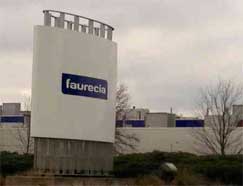| |
|
| |
|
 |
Supply
Chain by the Numbers |
| |
|
| |
- March 27, 2015 -
|
| |
|
| |
|
| |
|
| |
Michigan Auto Parts Plant Saved - but Workers Took a Big Hit; Another Consumer Packaged Goods Sector Mega-Merger; Amazon Expanding Its Indian Operations; IoT Turns Products into Services |
| |
|
| |
| |
| |
$11 |

|
|
|
| |
| |
|
$1.5 Billion
|
|
That's the level of "cost synergies" that are there for the taking as a result of the current owners of Heinz now saying they will acquire Kraft in another consumer packaged goods industry mega-merger. Warren Bufffet's Berkshire Hathaway teamed up with private equity firm 3G to acquire Heinz two years ago, before announcing this deal for Kraft this week, as industry consolidation continues. The $1.5 billion in savings, to be achieved by the end of 2017, includes contributions from such things as leveraging the combined purchasing volumes for ingredients, but as we all know will likely come largely from supply chain network consolidation and general layoffs, certainly impacting the supply chain as well.
|
| |
| |
|
| |
| |
1 Billion |

|
That's how many Internet of Things (IoT) enabled items (equipment, devices, pallets, etc.) that researchers from Deloitte say will be shipped/created in 2015 - up up 60% from 2014 and resulting in an installed base of about 2.8 billion connected devices. Importantly, while the research finds there will be some activity in home automation and related consumer applications, most of the action will be on the business side. Take washing machines for example- Deloitte believes the consumer advantage from such a connected appliance is minimal, but that "The insights revealed by this stream of data could be worth hundreds of dollars per machine over the course of its life, recouping the cost of making the IoT-enabled washing machine ten times over." It adds that "A connected product is no longer just a product - it is also a service." - and that is something worth thinking about.
|
| |
| |
|
|
|
| |
 |
 |
| |
|
|
| |